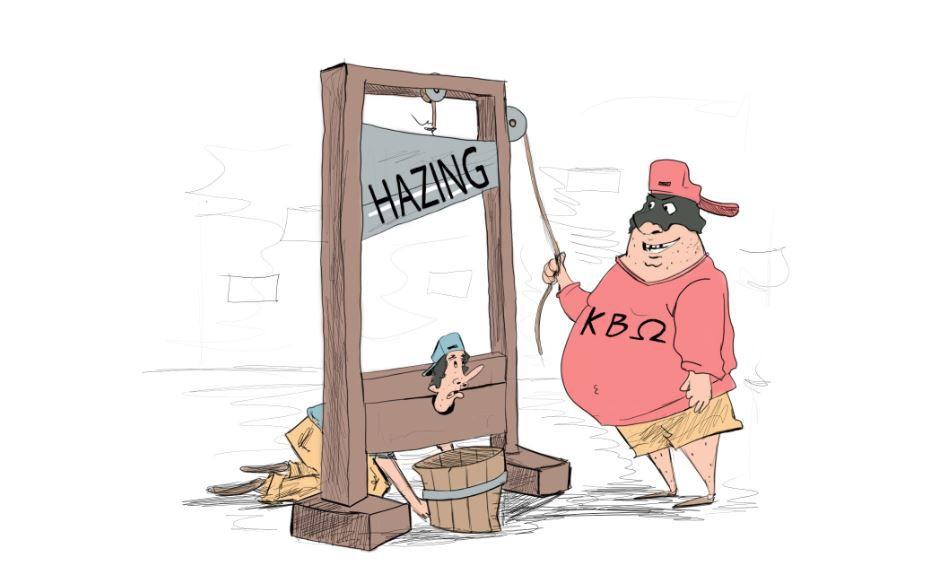Editor in chief Natalie Anderson and opinion editor Hannah Kleinpeter responded to feedback regarding Kyle Richoux’s column in a Letter from the Editors, which can be read here.
Following publishing, Kyle Richoux responded to feedback on this column here.
Editor’s note: This opinion column is a part of a head-to-head. Read the other article here.
It is always important to critically examine the state of our society and, by extension, the organization it contains. A year after the tragic passing of freshman pledge Max Gruver is a fine time to re-evaluate the Greek life system.
Fraternities are some of the most disreputable organizations on any college campus. Stories of hazing rituals and wild orgies surround fraternities. The trail of bodies they leave behind does not go very far to dispel such rumors.
With their dues, exuberant vacations, self-aggrandizing attitudes and affinity for boat shoes and fishing shirts, it is not a stretch to call fraternities clubs for rich young sociopaths.
Sororities are barns full of cookie-cutter cattle doused in glitter and blonde hair dye waiting to be used by frat boys for whatever debauchery their daddies can afford.
As though the endorsement of a gross and arrogant culture is not bad enough, Greek life has an unfortunate habit of leading potential members to their deaths.
Since 1959,at least one hazing related death has been reported around the nation each year. For reference, notorious serial killers Ted Bundy and John Wayne Gacy together racked up 69 confirmed kills.
Of course, it would be shortsighted to say only one death occured each year. Unfortunately, negligent hazing death is not an isolated incident. Numerous stories come out all the time, and they usually tell the same story.
Negligent veterans insidiously give recruits an obscene amount of alcohol and then proceed to neglect them, even in situations in which the recruit is unresponsive. Trying to avoid punishment is not worth another person’s life, but thus are the morals valued by Greek life.
A look back at Greek life from the past tells the tale of scholars grouping up in the pursuit of knowledge.
The first Greek letter fraternity was formed in 1825 as an alternative to Latin secret societies. They were created for academics to gather and seek out higher learning together.
Modern day fraternities are a mere mockery of the original purpose of Greek life. Today’s “brotherhoods” seemed to have learned their definition of brothers from the tale of Cain and Abel.
Some fraternities break through the grime and booze by dedicating themselves to the virtues of education. These groups are often honor societies tied to a particular college.
The honor societies have regular meetings to discuss academia and service projects, and they often come with opportunities for internships.
The biggest problem with honor societies is poor advertisement. Select teachers tell students about such societies in passing at the end of a semester. Little more is ever said, and the University does not make much of an effort to correct for it.
More visibility for honor societies would do us all some good and give another option to people who feel they need to join an organization to belong or find any friends.
The Greek life system we have now is broken and needs either a fixup or a complete removal. Partying and making friends is all fine and dandy, but the kill count of fraternities is far too high for them to remain.
Kyle Richoux is a 20-year-old sociology junior from LaPlace, Louisiana.
Opinion: Greek life a broken system, dangerous to naive new prospects
By Kyle Richoux
September 11, 2018







